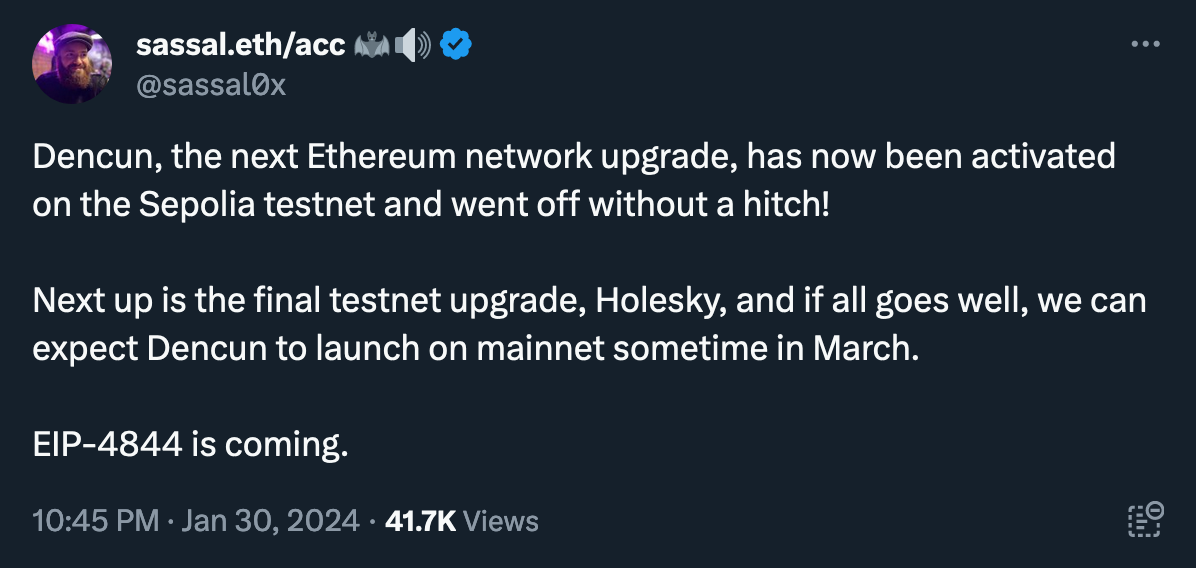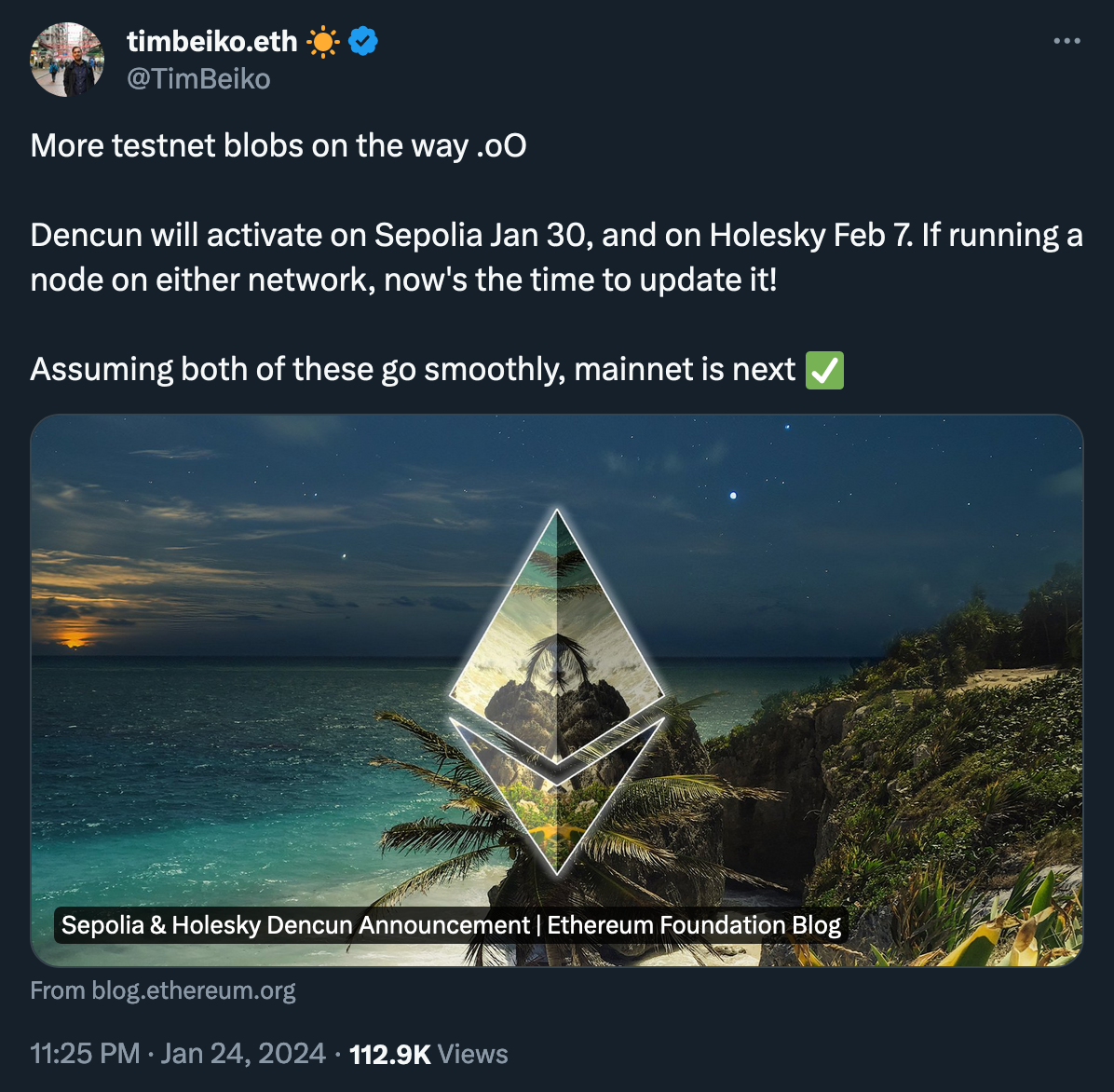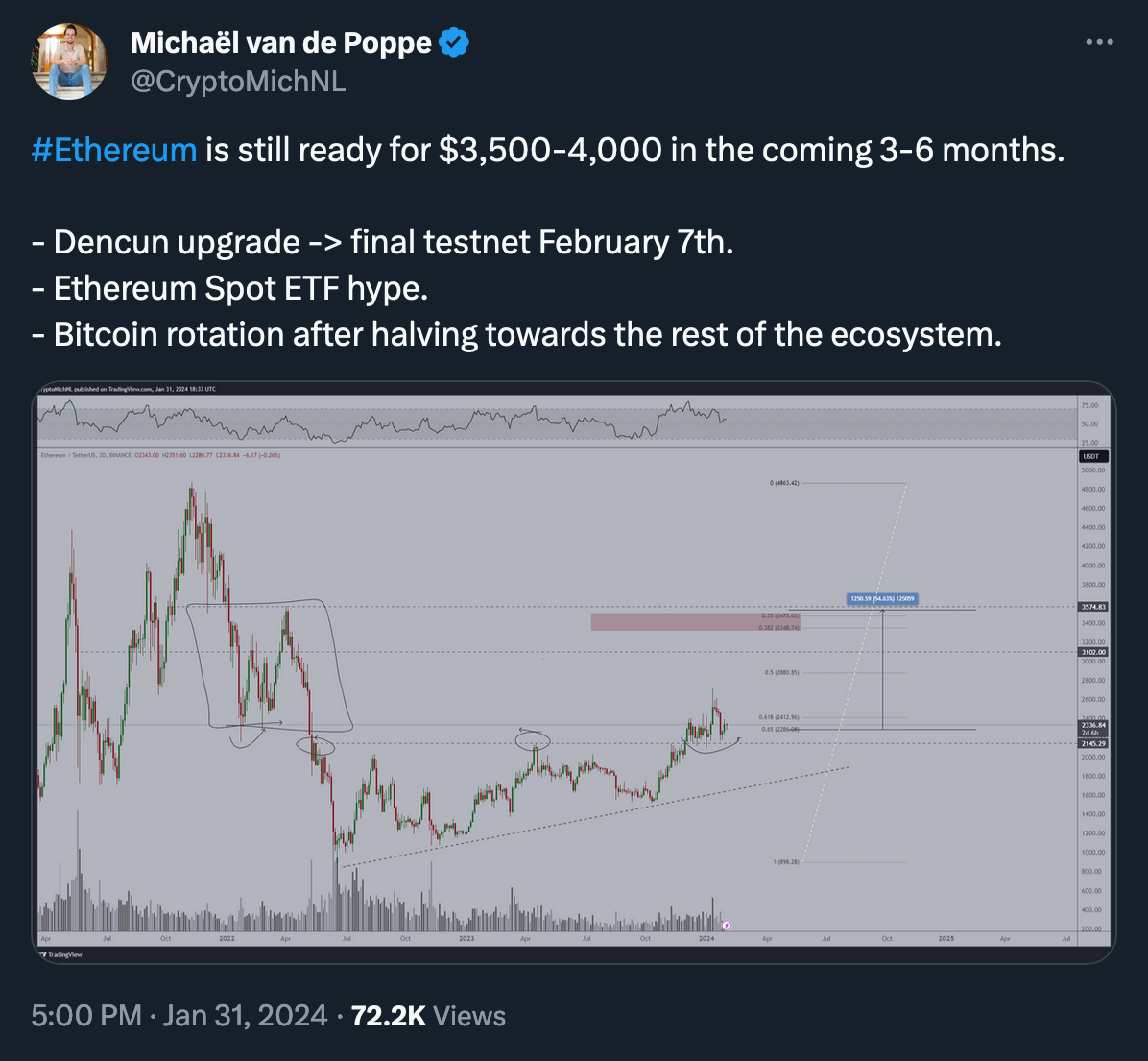Ethereum’s Dencun upgrade has been successfully deployed on a second testnet, with just one more testnet remaining before its activation on the main network. This forthcoming activation has the potential to enhance network capabilities drastically and contribute to its price appreciation, adding to market anticipation of an ETH ETF approval.

The upgrade’s deployment on the third and final testnet Holesky is scheduled for Feb. 7. After that, developers will set a date to activate Dencun on Ethereum's main blockchain.

A key feature of the Dencun upgrade is ‘proto-danksharding,’ which aims to reduce transaction costs for layer-2 blockchains and decrease data availability costs. This is achieved through a novel compressed data storage mechanism called ‘blobs.’
“Blobs store data temporarily, which is necessary only for short-term transaction verification, allowing for its eventual deletion to prevent network overload. Secure and efficient data handling is ensured through cryptographic commitments that detect any data alterations.” (Source: Decrypt).
Once fully implemented, the Dencun upgrade is expected to dramatically enhance Ethereum's transaction processing capacity, potentially enabling the network to handle over 100,000 transactions per second. This improvement is vital for sustaining Ethereum's expanding ecosystem of decentralized applications (dapps) and users.
“A blob-carrying transaction is like a regular transaction, except it also carries an extra piece of data called a blob. Blobs are extremely large (~125 kB), and can be much cheaper than similar amounts of calldata,”(Source: eip4844.com)
The introduction of the Dencun upgrade could impact Ethereum's market value, influenced by several factors:
- Enhanced Network Capabilities: By substantially increasing Ethereum's transaction processing capacity and reducing costs, Dencun may potentially attract more developers and users to the Ethereum ecosystem.
- Investor Perception: The successful deployment of Dencun might enhance investor confidence in Ethereum's long-term prospects, making it a more attractive investment option.
- Speculation and Market Sentiment: The cryptocurrency market's sensitivity to speculation and sentiment means that anticipation of the Dencun upgrade's benefits, or reactions to its successful implementation, could result in short-term price volatility.
According to CoinShares analyst Luke Nolan, the Dencun upgrade could also influence Ether supply by reducing gas costs associated with transactional calldata, which constitutes 90% of the gas fees paid by Layer 2 solutions:
”After the Dencun upgrade, instead of posting their data through calldata, Layer 2s can use the new blobspace mechanism, which has significantly lower gas costs. So, if we expect layer 2s to gradually shift to using this new blobspace mechanism, we could see gas prices settle at lower levels, which means less ether is burned," Nolan told The Block.
However, this impact could be mitigated by other factors, as it is the demand at Layer 1 that significantly drives deflation, and even substantial usage of blobs may have a minimal effect on the circulating supply.

---
MetaTalks disclaims responsibility for any investment advice that may be contained in this article. All judgments expressed are solely the personal opinions of the author and the respondents. Any actions related to investing and trading in crypto markets involve the risk of losing funds. Based on the data provided, you make investment decisions in a balanced, responsible manner and at your own risk.

